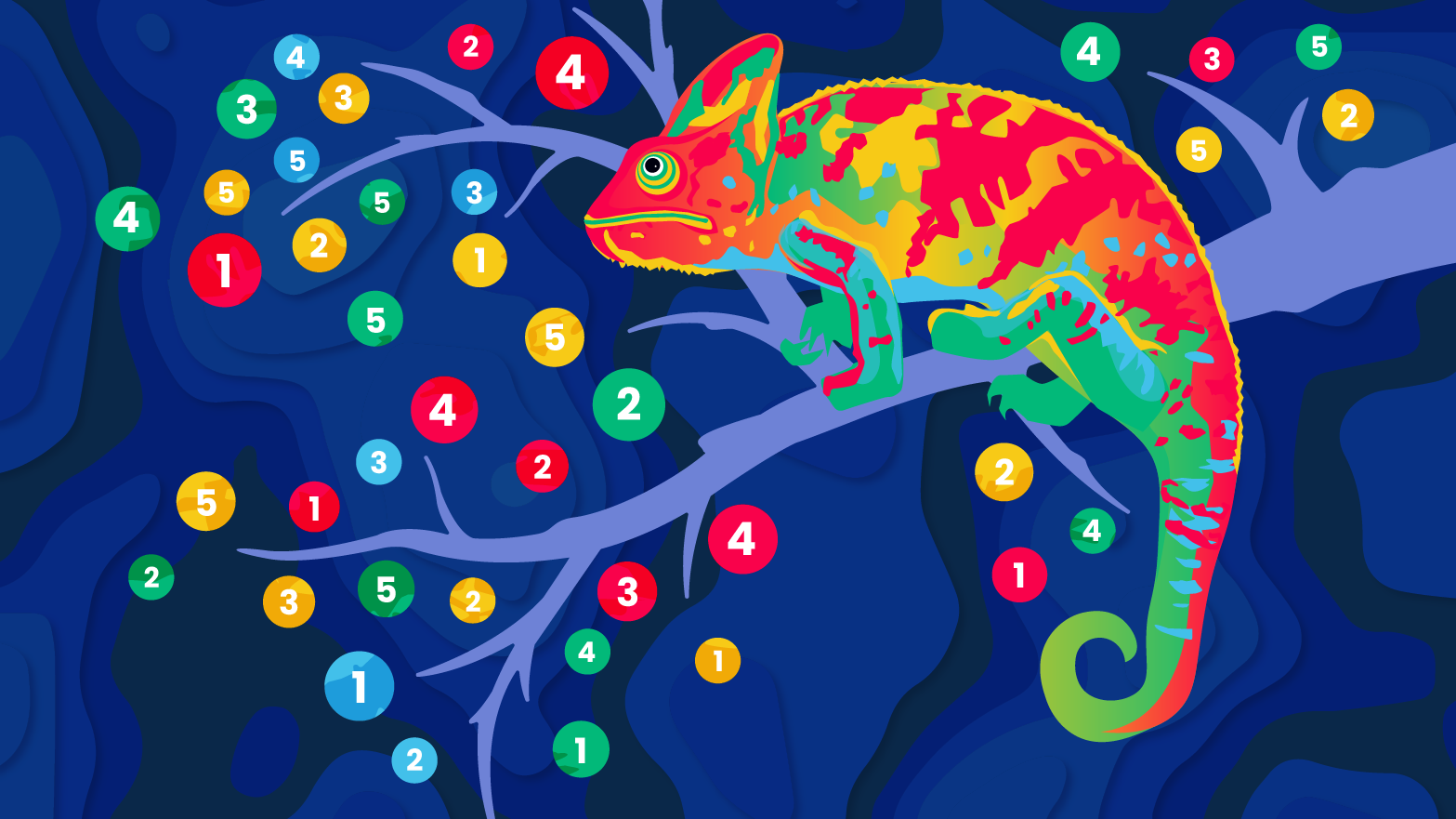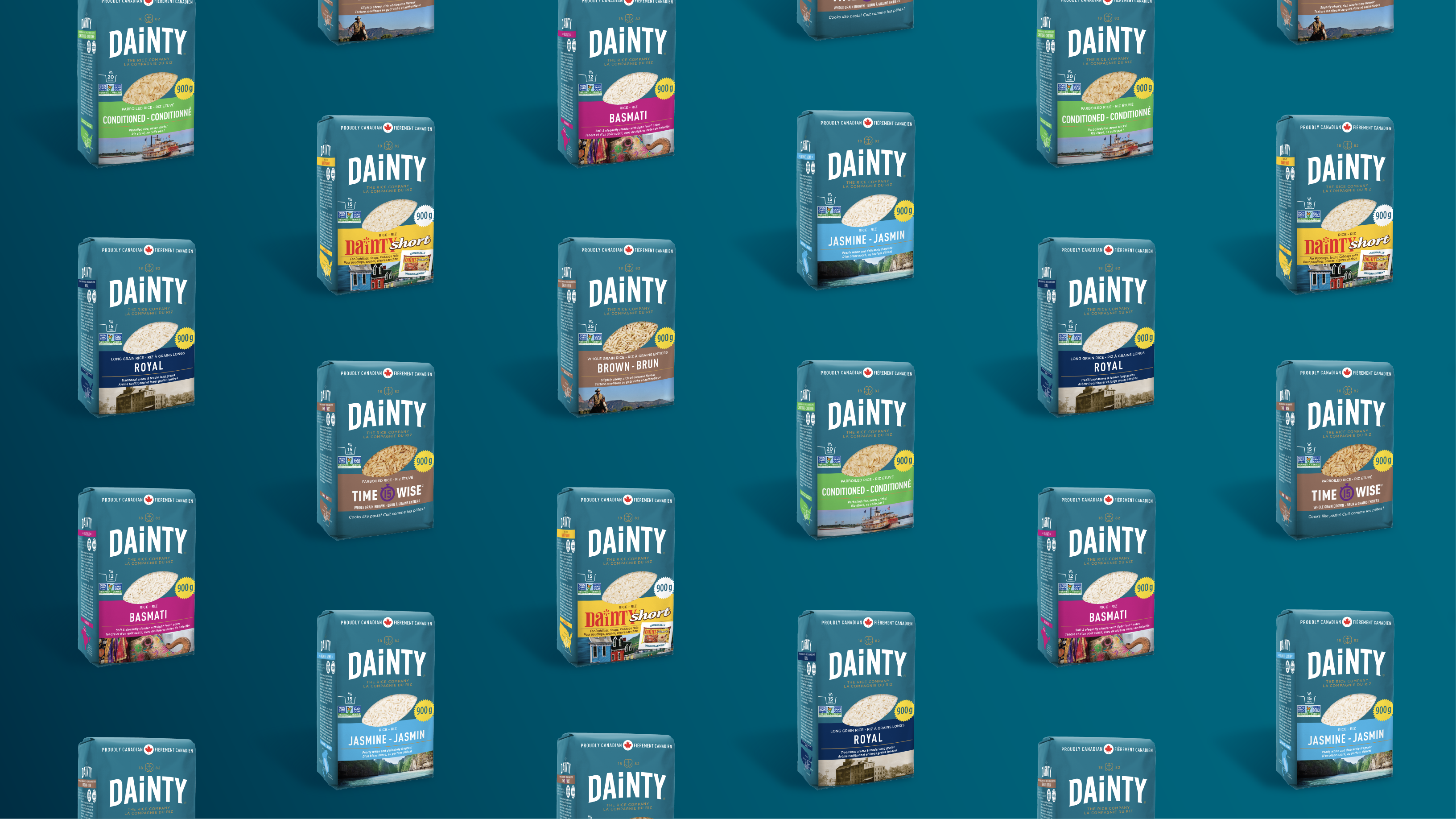6 Adaptability Takeaways From Our Recent Annual Retreat
Each year, we host our annual company retreat in scenic wine or cottage country. The annual getaway unifies our two offices and provides a time for focused learning to benefit our clients. This year’s theme centred around our Adaptability Quotient (AQ). Here’s what we learned.
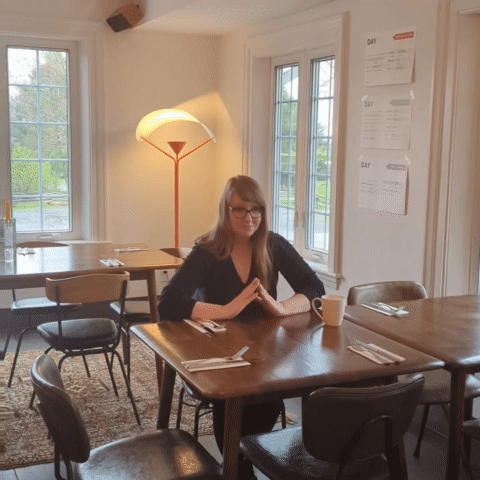
Takeaway #1: Even GIFs can be effective communication tools.
While effective communication is essential to adaptable teams, it is also an ongoing challenge — a puzzle that keeps evolving. There's no one-size-fits-all solution, which means, as an agency, we sometimes need to get creative!
We developed a dynamic activity called “Getting Giphy With It” for this year’s retreat. It served two purposes:
- 01 To inject some fun into our retreat.
- 02 To create a collection of clever, up-to-date, and concise GIFs that our team could use to communicate.
Daily account management check-ins? Celebrating a huge client win? Feeling frustrated with a project? There’s a GIF for that. It’s a fantastic (if not hilarious) way to keep our internal communications lively.
Takeaway #2: Teams need a mix of thinkers, feelers, doers, and motivators.
Adaptable teams contain a mix of people who are strong in thinking, feeling, doing, and motivating. To help each of our team members discover their strengths in these arenas — and our leadership team to identify any gaps — we took the HIGH5 personality test. It’s a 20-minute psychometric assessment that digs deep and reveals our top five core strengths.
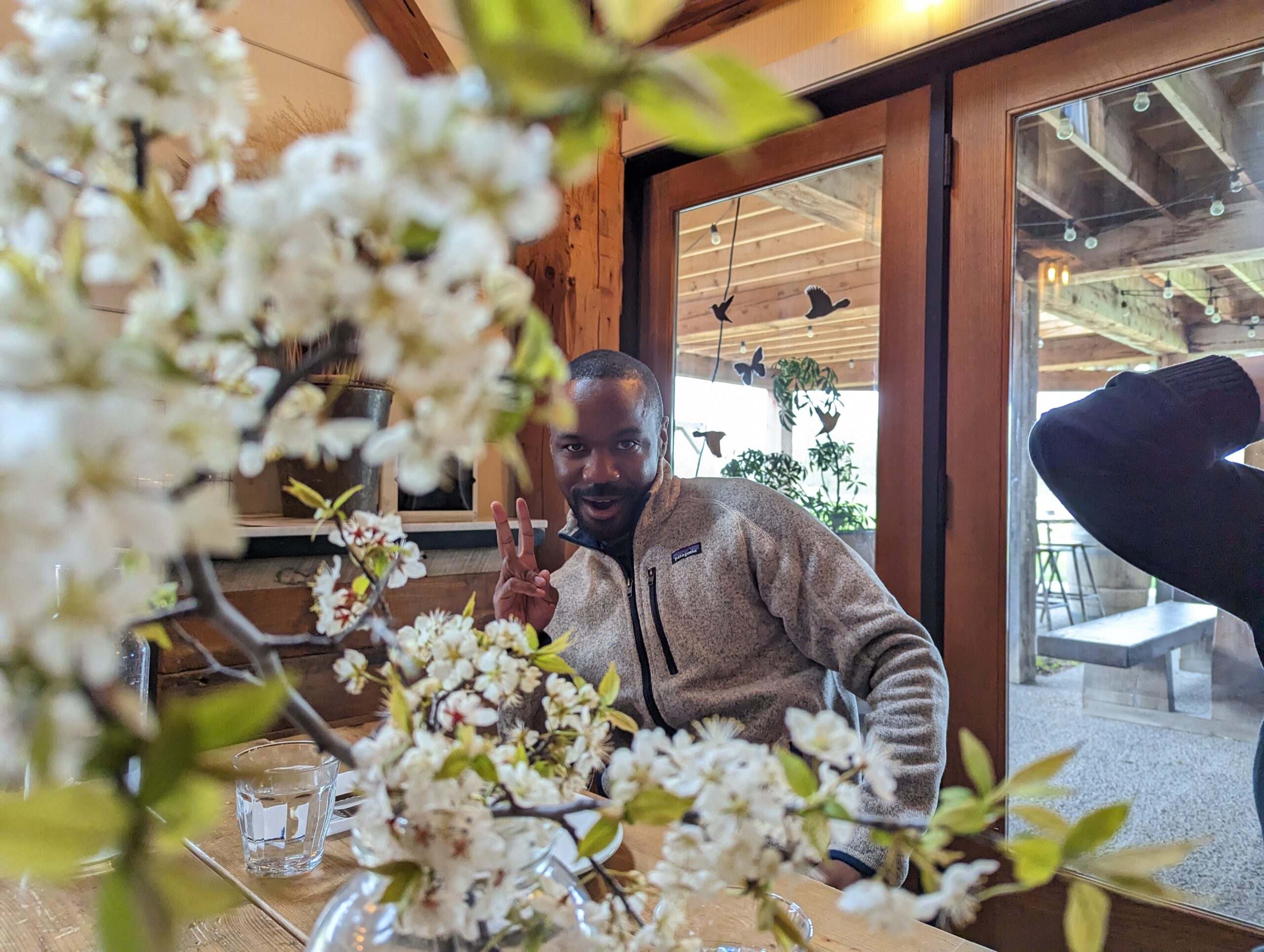
After each team member independently completed the personality test, we visualized our strengths collectively by creating a matrix where everyone logged their top five strengths. This helped us discover that while we have folks representing each strength category, some others were a little less populated.
Knowing where our strengths do and don’t lie helps us do two things. First, we can focus on nurturing and developing new skill sets within our current team by allowing everyone to level up. Second, we already have the inside scoop when hiring new team members. We know exactly which strengths we need to complement our existing crew and take our game to the next level.
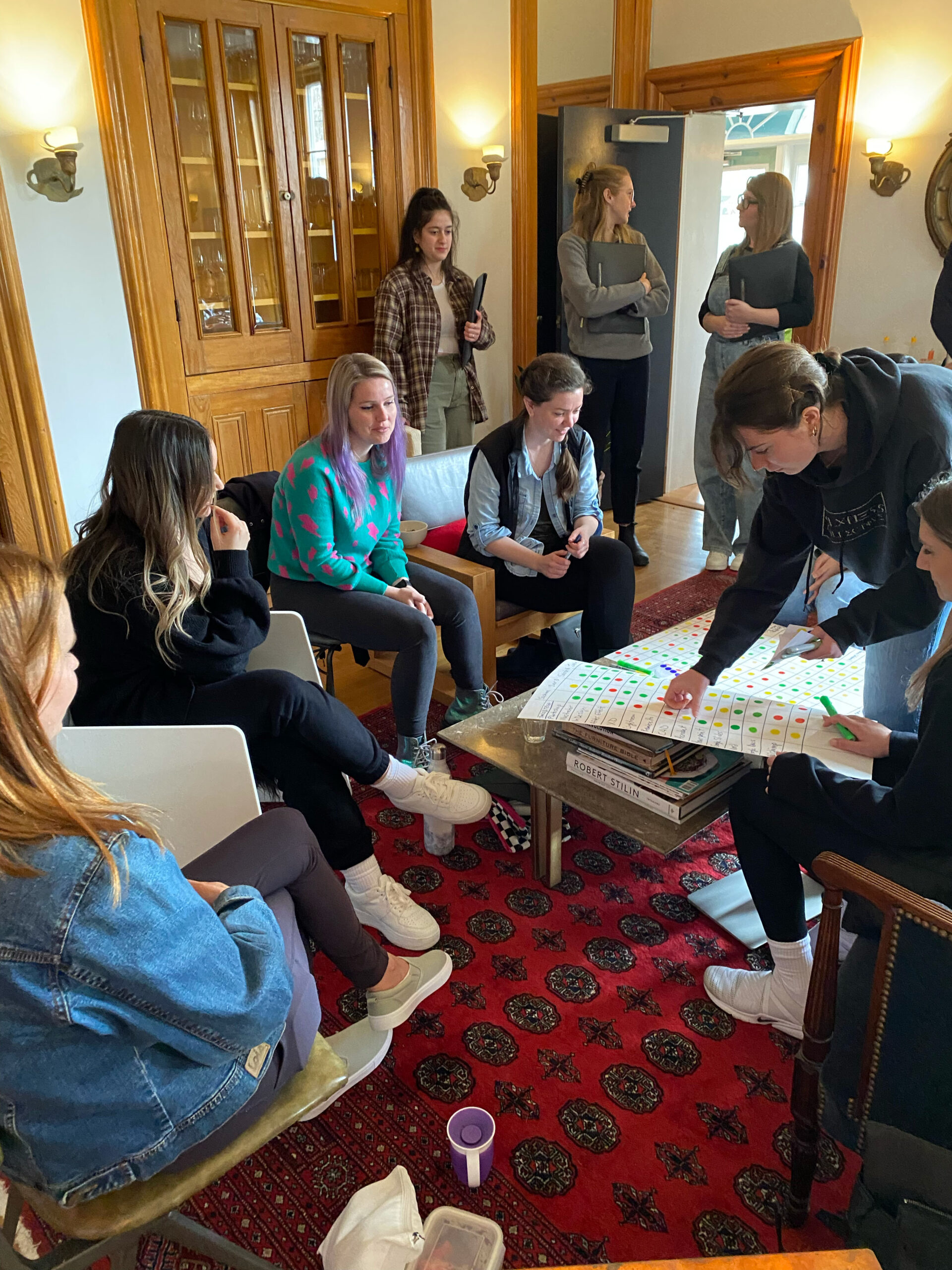
Takeaway #3: Defining experts, practitioners, and novice team members will improve your team.
Every workplace has team members with varying skills and skill levels. It’s important to understand who's an expert that can lead, who is comfortable with a task, and who may need a little extra guidance.
In the face of dynamic and unpredictable situations, this information lets you identify who is best suited for a particular task and to role switch to adapt to changing circumstances for optimal performance.
To uncover this information at our retreat, we broke our team into small groups and asked them to list the skills needed to undertake a specific project. Next, we had them list each skill on a chart and self-assess their skill level (expert, practitioner, or novice) with colour-coded stickers.
The beauty of this exercise is that it highlighted the skills we bring to the table and revealed who can step up and lead in specific areas. We discovered the go-to team members for specific skills. We identified mentors who can share their knowledge and expertise to foster collaboration and rely on each other’s strengths.
Takeaway #4: Acknowledging shortcomings is easy. Celebrating wins is harder. Both are necessary.
It’s easy to point out our shortcomings, but celebrating our triumphs? That seems to always be a whole different story. Yet, being mindful of both is essential for staying motivated and poised for change. This brought us to our next retreat activity to tackle this head-on “Positive Posts and Growth Notes.”
We grabbed our trusty Post-It notes and jotted down things we could work on and things they excelled at and were worth celebrating. Here’s the kicker: listing our shortcomings came naturally, almost too effortlessly. But when it came to highlighting our strengths and accomplishments, it was like pulling teeth.
Recognizing our weaknesses gives us a reason to pivot, change, and grow. It incentivizes us to become better versions of ourselves. On the other hand, celebrating our wins keeps us going – an espresso-sized shot of motivation straight to the dopamine receptors. Valuing our successes gives meaning and purpose to our work, igniting a sense of inner fulfillment.
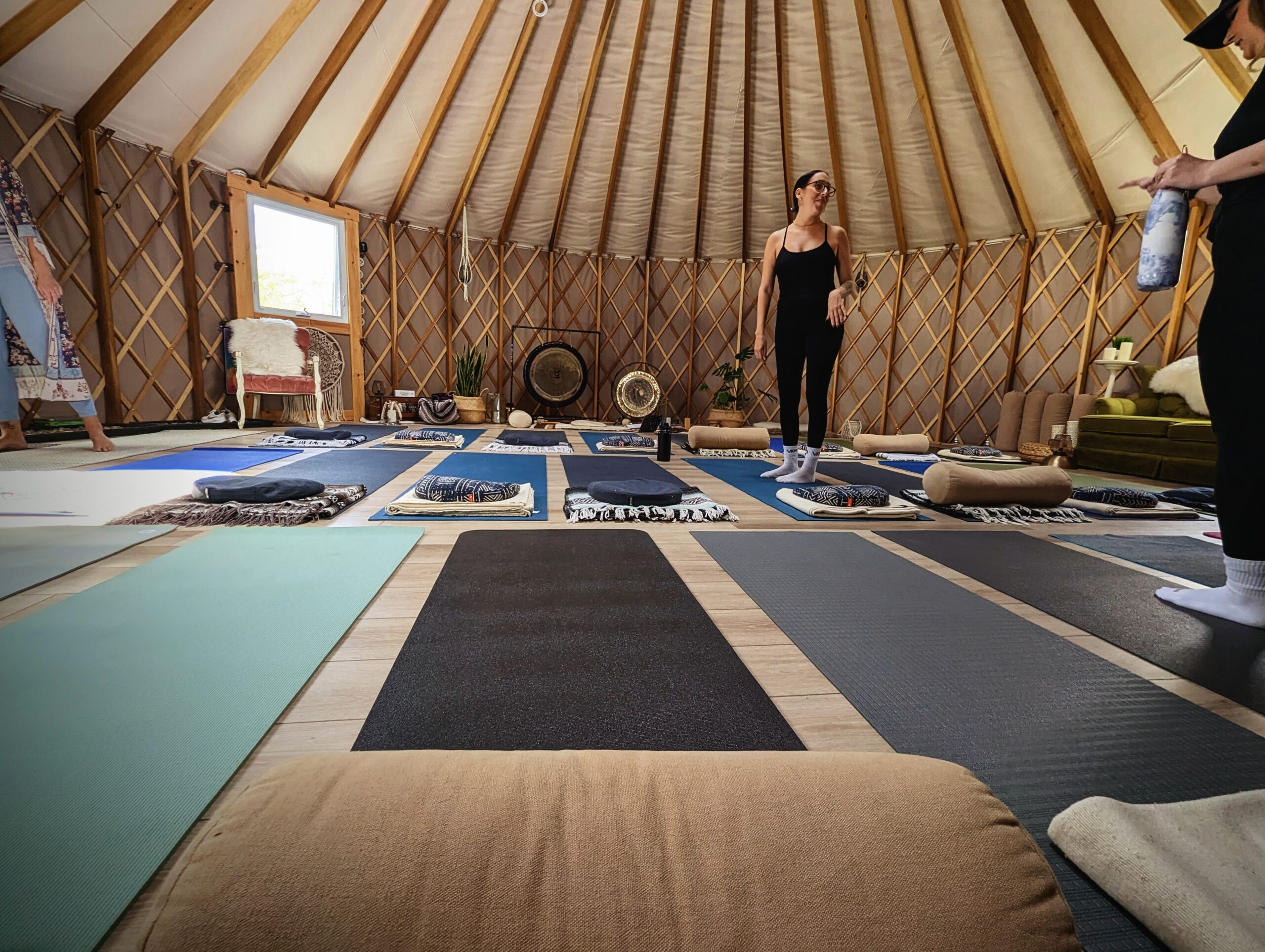
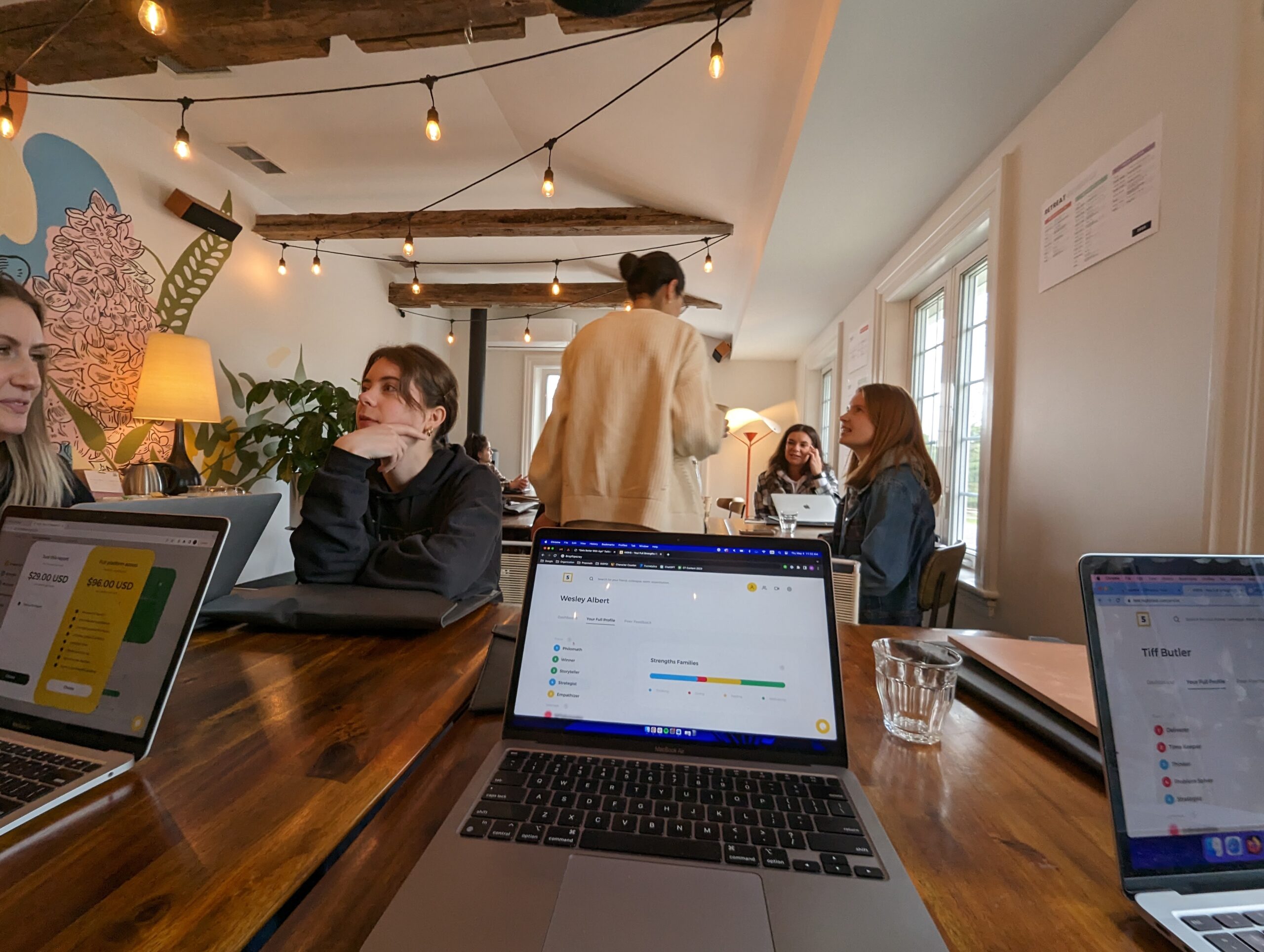
Takeaway #5: Finding smart and ethical ways to use AI is necessary.
In case you missed it, AI made headlines across all facets of our industry. Finding smart and ethical ways to use AI is an absolute must for our agency.
In the spirit of this year’s retreat theme, we explored the possibilities and risks of adapting to AI and incorporating it into our workflow. We brainstormed and envisioned how to harness this powerful technology to take our game to the next level while laying the groundwork for our forthcoming AI policy.
Here’s the thing about AI: it brings its fair share of ethical challenges. We questioned the dilemmas that can arise. Our conversations reminded us of the importance of an AI policy for transparency. We believe in adopting new tools and technologies to benefit our clients but are committed to doing so responsibly — while staying true to our values.
Takeaway #6: Goal-getting is how companies shift and grow.
Goal-getting is the secret sauce for company change and growth. It’s about taking action and making things happen. It’s the proactive cousin of goal setting.

Adaptability, like intelligence and emotional understanding, is a key skill in dealing with different situations and working well with others. When we challenge ourselves, we enhance our problem-solving abilities and change our brains to become more adaptable.
Why Focus on AQ?
As a marketing agency, we must always be poised for change. Our world, let alone our industry, constantly evolves with new trends, tools, and technologies that keep us on our toes to better serve our clients.
Adaptability, like intelligence and emotional understanding, is a key skill in dealing with different situations and working well with others. When we challenge ourselves, we enhance our problem-solving abilities and change our brains to become more adaptable.
In the end...
This year’s retreat taught us valuable lessons about advancing our AQ. Now, armed with newfound knowledge and a clear direction, we’re ready to embrace change and continue our journey of success.

